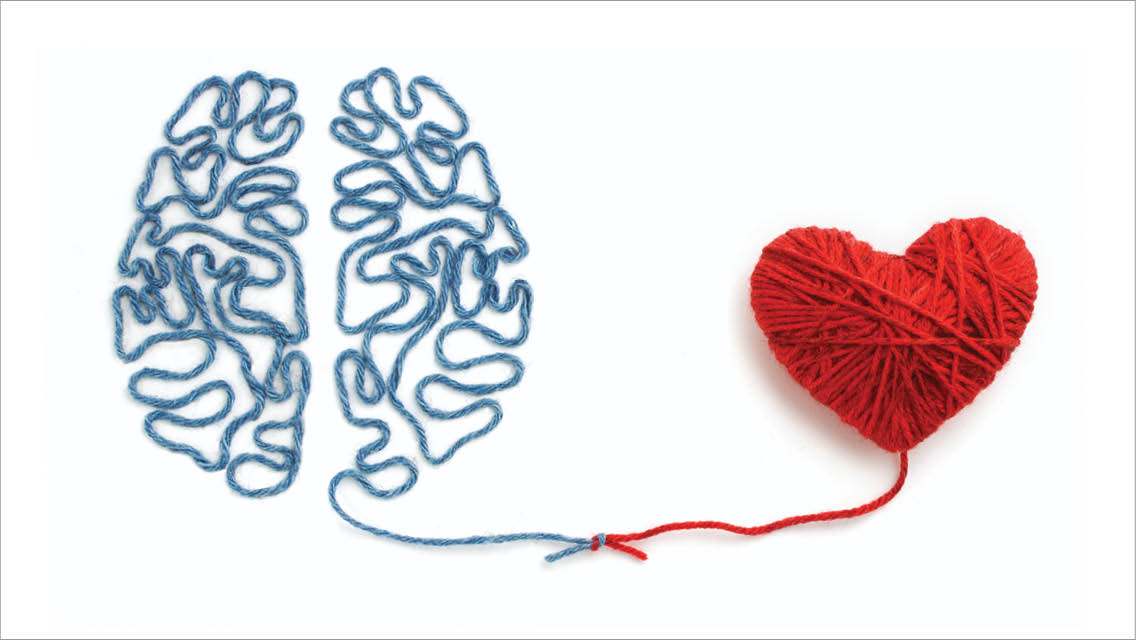Singers have long crooned that “love is a many-splendored thing,” but now modern brain scans are uncovering various splendors not hailed in melodies.
“My scientific research on the brain has convinced me that a healthy love life is as necessary to a person’s well-being as nutritious food, exercise, or clean water,” says Stephanie Cacioppo, PhD, assistant professor of psychiatry and behavioral neuroscience at the University of Chicago and author of Wired for Love.
Although she has studied maternal love and the affection we feel for friends, pets, work, and sports, her research focuses on romantic love, including the following findings.
Why We Love With All Our Brain
We tend to think of love as a matter of the heart, but it’s actually focused in the brain. And it doesn’t center on any one area.
“The brain prizes versatility and likes to spread its work across many regions,” Cacioppo explains.
These include the deep emotional portions; the frontal lobe, which is responsible for high-level intellectual and cognitive function (as well as feeling pain, including so-called heartbreak); and even the angular gyrus, which is peculiar to apes and humans and is connected to creativity and abstract thought.
“By looking deep into the brains of people in love,” Cacioppo says, “we discover that this complex neurobiological phenomenon activates not just the brain’s mammalian pleasure centers but also our cognitive system, the most evolved, intellectual parts of the brain that we use to acquire knowledge and make sense of the world around us.”
Why Love Feels So Euphoric
“The first thing you’ll notice if you’ve ever fallen in love is how good it feels,” Cacioppo notes. “Falling in love sets off a whole array of biological fireworks.”
Love prompts the brain to release glucose and adrenaline, providing bolts of extra energy. Dopamine sparks the brain’s feel-good reward circuitry, the same areas triggered when someone eats delicious food, drinks alcohol, listens to their favorite music, or uses heroin.
Norepinephrine spikes, focusing attention, but it can also cause flighty feelings and make us lose track of time. Serotonin plummets to a level similar to that of someone suffering from obsessive-compulsive disorder. Physical contact — or even looking into your beloved’s eyes — stimulates oxytocin, “the bonding hormone,” which supports feelings of bonding and trust.
These hormones result in love’s sense of euphoria, Cacioppo says. “Romantic love feels like a superpower that makes the brain thrive.”
Why We Need Love in Our Lives
Love is a biological necessity, Cacioppo believes; it’s been essential to helping us develop and evolve. And new research shows that love makes us stronger — emotionally, cognitively, and even physically.
“Those in satisfying, healthy long-term romantic relationships sleep better. They have better immune function. They exhibit fewer addictive behaviors. They suffer fewer recurrent strokes. They even have a better survival rate for some diseases (including some cancers),” she says. “Love not only has a calming effect on stress but also promotes healing.”
And love is important not just to our lives but also to the survival of the species. The ability to feel love and build social connections allowed Homo sapiens to outlast the larger, stronger Neanderthals, Cacioppo states.
“Love helps us realize our innate human potential,” she adds. “We need to love others to survive.”
This article originally appeared as “Your Brain In Love” in the October 2022 issue of Experience Life.





This Post Has One Comment
Thanks for explaining it so well.